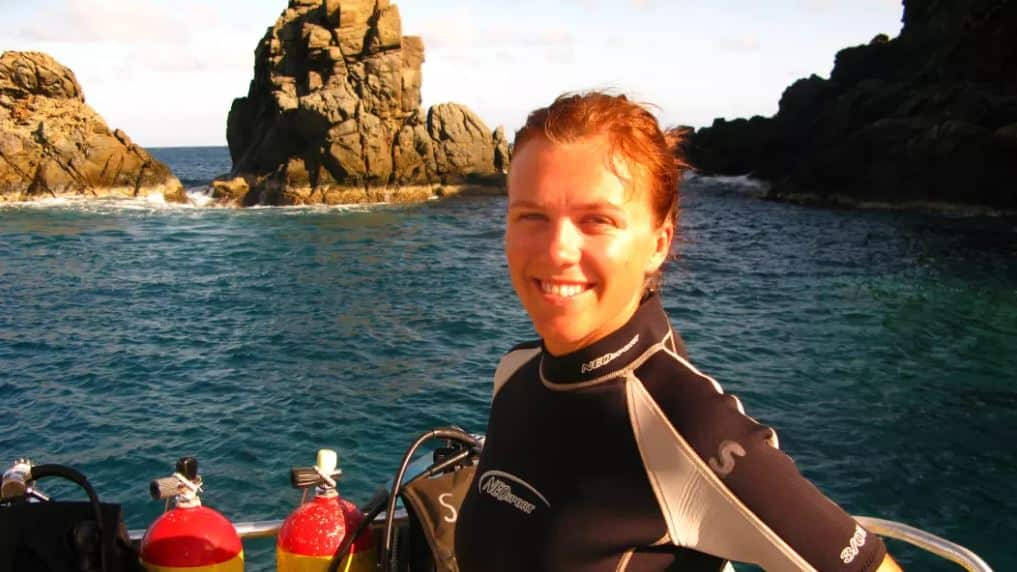I’m 33 and I live in a dementia ward, which is exactly as bad as you imagine.
But I’m not here because I have dementia. I’m here because it is the quietest (except when the residents are yelling), least perfume-saturated ward. I need my environment to be quiet and chemical free because I have Multiple Chemical Sensitivities (MCS) and ME (myalgic encephalomyelitis) sometimes called chronic fatigue syndrome (CFS or ME/CFS).
ME/CFS is a brutally disabling neurological disease that causes chemical, noise and light sensitivity, and metabolic impairment. It is is characterised by exertion intolerance: having ME/CFS means the slightest exertion can cause severe flu-like symptoms, brain fog, and body wide pain for days, weeks, months or even years.
I was hit hard with this disease and, within a year, I’d deteriorated so much that I needed 24/7 care and, after a three month stint in hospital, I was sent to live in aged care. I have been lucky that all the nurses and carers here are very supportive.

Before ME/CFS took over my life, I was an active 25-year-old. I had my commercial skippers tickets and was working on luxury yachts sailing the world. I had a wide range of duties, from looking after guests and standing watches, to fixing toilets, climbing up the mast, and lots of cleaning and re-cleaning surfaces. And the perks – diving with manta rays, "testing" new wines and travelling the world – were fantastic.
Sometimes I wonder if boat life helped prepare me for living in aged care. On the boat, drunken crew members would wander into my cabin in the middle of the night looking for their bunk. Here on the ward, dementia patients wander into my room at all hours, looking for a toilet.
One morning a resident barged into my room in the ward and after sternly looking around at my red salt lamp and large wooden privacy screen, she sharply queried, “What’s going on here? Is there a man in here? Are you running a brothel?”
I had a good giggle afterwards, but most days the residents are not so entertaining: dementia is a very cruel disease.
Yet, I am quite envious of the dementia patients' physical capabilities. They can do so, so much more than me. I would love some of their energy.
There are a couple of reasons why my ME/CFS is so disabling. Firstly, I have always had the genetic malformations that Australian researchers have found in people with ME/CFS and I can’t do anything to change that.
Secondly, when I first got sick I followed the 2002 RACGP guidelines for CFS. I tried the Graded Exercise Therapy (GET) and Cognitive Behavioural Therapy (CBT) that they recommend. These looked very good on paper, however the patients that benefit from these are in the minority. Most of us report getting much worse and disappear from life, the "#millionsmissing" hashtag collating our experiences.
As it was, I was confused by the conflicting advice in the 2002 Australian guidelines. I was to ignore my symptoms and rest enough for them to abate, yet, at the same time, I was to carry on with my life as usual and the disease would self resolve. Yet my life looked and felt nothing like usual, daily tasks like showering were a struggle. I had to stop working and couldn't study.
The more I rested, the less severe my symptoms became. But the slightest exertion made them worse.
My symptoms were always present, always significant and increasingly extreme. I started to get painful reactions to medications, supplements, food and noise. Even the noise of rain on the roof hurt.
It felt as if everything in the world was starting to harm me, because it was.
Things changed once the 2011 International Consensus Primer for Medical Practitioners for myalgic encephalomyelitis were published. Three of Australia’s ME/CFS experts helped develop these guidelines and by following them, pacing, using energy conservation techniques and being mindful of my heart rate limits and anaerobic threshold, I stopped deteriorating and started to stabilise.
Two of the ME/CFS experts who helped develop that primer, Professor Sonya Marshall-Gradisnik and Professor Donald Staines, speak in a short video I made called After Unrest. It covers my story and includes short talks by a range of health professionals. I hope that it helps other patients get the care, support and assistive technology that they need to avoid becoming as disabled as me.
For myself, I am hoping the NDIA will get me out of aged care. I miss my family and friends. I want to live in a real home, free of chemicals, constant noise – and dementia patients.
Insight is Australia's leading forum for debate and powerful first-person stories offering a unique perspective on the way we live. Read more about Insight
Have a story or comment? Contact Us


